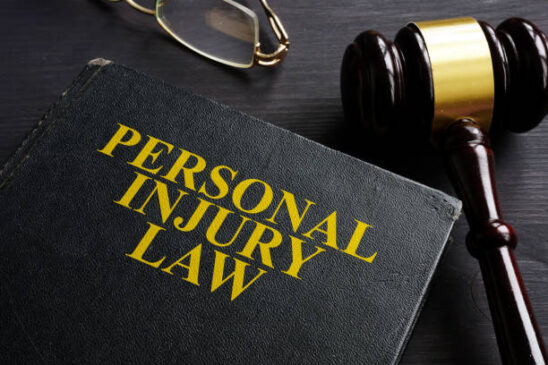
Outline of the Article
- Introduction to Personal Injury Law Firms
- What is a personal injury law firm?
- Importance of choosing the right firm for your case
- Types of Personal Injury Cases Handled
- Car accidents
- Slip and fall incidents
- Medical malpractice
- Workplace injuries
- Why You Need a Personal Injury Law Firm
- Expertise in personal injury law
- Resources and support for your case
- Maximizing compensation
- Qualities of a Successful Personal Injury Law Firm
- Experience and track record
- Client-centered approach
- Communication and transparency
- Initial Consultation and Case Evaluation
- Importance of the first meeting
- Assessing the strength of your case
- Legal Team and Support Staff
- Roles within a personal injury law firm
- Collaboration and expertise
- Handling Insurance Companies
- Negotiation strategies
- Litigation if necessary
- Costs and Fees
- Contingency fees and other arrangements
- Transparency in billing practices
- Client Testimonials and Case Studies
- Success stories
- Impactful client representation
- Choosing the Right Personal Injury Law Firm
- Research and referrals
- Consultations and evaluations
- Ethics and Professional Standards
- Adherence to legal ethics
- Trust and confidentiality
- Technology and Innovation in Personal Injury Law
- Impact of technology on case management
- Future trends
- Community Engagement and Advocacy
- Firm’s role in the community
- Advocacy for client rights
- Challenges in Personal Injury Law
- Complexities of litigation
- Overcoming legal hurdles
- Conclusion
- Recap of the role of personal injury law firms
- Final thoughts on seeking legal representation
Article: Personal Injury Law Firm
Introduction to Personal Injury Law Firms
When accidents occur and injuries ensue, the choice of legal representation can significantly impact the outcome of a case. Personal injury law firms specialize in advocating for individuals who have been harmed due to the negligence or misconduct of others. These firms provide essential services to help clients navigate the complexities of the legal system and pursue just compensation for their injuries.
Types of Personal Injury Cases Handled
Personal injury law firms handle a wide range of cases, including but not limited to car accidents, slip and fall incidents, medical malpractice claims, and workplace injuries. Each case requires specific expertise to assess liability, quantify damages, and negotiate settlements or litigate in court on behalf of the injured party.
Why You Need a Personal Injury Law Firm
Engaging the services of a personal injury law firm offers several advantages. These firms specialize in personal injury law, dedicating their resources and expertise to securing favorable outcomes for their clients. They understand the intricacies of insurance negotiations and legal proceedings, ensuring that clients receive maximum compensation for their injuries and losses.
Qualities of a Successful Personal Injury Law Firm
Successful personal injury law firms share common attributes that distinguish them in the legal landscape. They possess extensive experience in handling complex cases, a client-centered approach that prioritizes individual needs, and effective communication skills that foster trust and transparency throughout the legal process.
Initial Consultation and Case Evaluation
The initial consultation with a personal injury law firm is a crucial step in the client-attorney relationship. During this meeting, attorneys assess the merits of the case, discuss legal options, and outline expectations for the legal process ahead. It’s an opportunity for clients to ask questions, gain clarity on their rights, and make informed decisions about moving forward with representation.
Legal Team and Support Staff
Behind every successful personal injury law firm is a dedicated team of legal professionals and support staff. Attorneys collaborate with paralegals, investigators, medical experts, and other specialists to build robust cases that stand up to scrutiny in negotiations or courtrooms. This teamwork ensures comprehensive representation and thorough preparation at every stage of litigation.
Handling Insurance Companies
Navigating negotiations with insurance companies is a key responsibility of personal injury law firms. Attorneys employ strategic negotiation tactics to advocate for fair settlements that adequately compensate clients for medical expenses, lost wages, pain and suffering, and other damages. If insurers are unwilling to settle for a fair amount, the firm is prepared to litigate aggressively to protect client interests.
Costs and Fees
Personal injury law firms typically operate on a contingency fee basis, meaning they only collect fees if they successfully recover compensation for their clients. This arrangement allows injured individuals to access legal representation without upfront costs or financial risk. It’s essential for clients to discuss fee structures and billing practices with their attorneys to ensure transparency throughout the legal process.
Client Testimonials and Case Studies
Client testimonials and case studies highlight the effectiveness of a personal injury law firm’s representation. Success stories underscore the firm’s ability to achieve significant settlements or favorable verdicts on behalf of clients, demonstrating their commitment to delivering justice and financial recovery for those injured due to negligence.
Choosing the Right Personal Injury Law Firm
Selecting the right personal injury law firm involves thorough research and consideration of several factors. Potential clients should seek referrals, read reviews, and schedule consultations with multiple firms to evaluate their experience, approach to cases, and compatibility with client needs. It’s essential to choose a firm that instills confidence and demonstrates a track record of success in handling similar cases.
Ethics and Professional Standards
Personal injury law firms adhere to strict ethical standards and professional conduct rules established by state bar associations. They uphold principles of integrity, confidentiality, and fiduciary duty to prioritize the best interests of their clients throughout legal proceedings. Clients can trust that their personal injury lawyer will advocate diligently and ethically on their behalf.
Technology and Innovation in Personal Injury Law
Advancements in technology have transformed the practice of personal injury law, enhancing case management, evidence presentation, and client communication. From digital evidence collection to virtual courtroom presentations, firms leverage technology to streamline processes and enhance advocacy for their clients. Innovations continue to shape the future of legal practice, offering new tools and strategies to achieve favorable outcomes in personal injury cases.
Community Engagement and Advocacy
Personal injury law firms often play active roles in their communities beyond legal representation. They participate in advocacy efforts, support local charities, and contribute to initiatives that promote safety and justice. By engaging with the community, these firms demonstrate their commitment to making a positive impact beyond the courtroom.
Challenges in Personal Injury Law
Despite their expertise, personal injury law firms face challenges such as navigating complex legal statutes, managing client expectations, and overcoming resistance from opposing parties or insurers. Experienced attorneys anticipate these challenges and develop strategic approaches to address them effectively, ensuring the best possible outcomes for their clients.
Conclusion
In conclusion, personal injury law firms serve a vital role in the legal system by advocating for individuals who have suffered injuries due to negligence or wrongful actions. Their expertise, dedication, and commitment to client advocacy ensure that injured parties receive the justice and compensation they deserve. By choosing a reputable personal injury law firm, individuals can navigate challenging legal processes with confidence and peace of mind.
FAQs
- What should I do immediately after being injured in an accident?
- Seek medical attention first and foremost. Once safe, document the accident scene, gather contact information from witnesses, and consult with a personal injury law firm as soon as possible to protect your rights.
- How do personal injury law firms determine if I have a case?
- Personal injury law firms assess the merits of your case during an initial consultation, reviewing evidence, evaluating liability, and discussing legal options based on the specifics of your situation.
- What types of compensation can I expect in a personal injury case?
- Compensation in personal injury cases may include medical expenses, lost wages, pain and suffering, emotional distress, and in cases of extreme negligence, punitive damages.
- How long does it take to resolve a personal injury case?
- The duration of a personal injury case varies depending on factors such as the complexity of the case, negotiations with insurers, and court schedules. Some cases settle quickly, while others may take months or even years to resolve.
- Can I afford a personal injury lawyer if I’m not working due to my injuries?
- Yes, personal injury lawyers typically work on a contingency fee basis, meaning their fees are contingent upon recovering compensation for you. There are no upfront costs, and fees are deducted from your settlement or court award.
This comprehensive article provides a detailed exploration of personal injury law firms, empowering readers with the knowledge needed to understand their rights, navigate legal proceedings, and make informed decisions when seeking legal representation for personal injury claims.


